Photo AI
Last Updated Sep 26, 2025
Political authority and government Simplified Revision Notes for A-Level Edexcel History
Revision notes with simplified explanations to understand Political authority and government quickly and effectively.
294+ students studying
Political authority and government
📌 The establishment of a Bolshevik State
On the 25th of October 1917:
- The All-Russian Congress of Soviets met the same evening
- Socialists from other parties denounced the actions of the Bolsheviks
- The other main socialist parties stormed from the hall and only the left-wing Socialist Revolutionaries remained
- This gave the Bolsheviks a majority in the congress
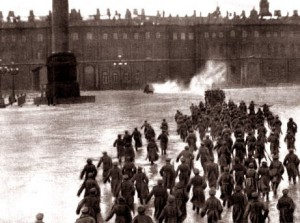
October Revolution
- Lenin later arrived and announced the formation of a Bolshevik government
- While the insurrection in Petrograd was relatively bloodless, it was not the case in Moscow and some other towns.
- There were ten days of bloody fighting in Moscow between the Bolsheviks and forces loyal to the Provisional Gov before a truce was agreed.
- Forces under General Krasnov threatened Petrograd, but they were turned away by a mixed force of workers, sailors and soldiers.
- However fragile, the Bolsheviks were now in power in Russia
The All-Russian Congress of Soviets
- The first congress was held in June 1917, dominated by the Mensheviks and SRs
- Delegates were sent from the Soviets across Russia.
- Congress was an important forum and potentially very powerful
- The second congress was called for the 25 of October, it reflected the Bolshevik success in elections to the Soviets
- They did not however have a majority of delegates
- Trotsky engineered the walkout by the other parties
- This meant they were in the majority by the time Lenin announced the formation of the new government
- Trotsky used the congress to claim they were taking power in the name of the Soviets and honouring their pledge of 'all power to the Soviets'
Bolsheviks in power
- Lenin had taken power in the name of the Soviets and it soon became clear that the Bolsheviks were in control
- Lenin announced the Sovnarkom, entirely composed of Bolsheviks
- This was the Council of People's Commissars: the top Bolshevik gov. body (30-40 members)
- Some left SRs were later invited to join
- Lenin did not want to work with other socialists so did not exercise power through the Soviet
- The foundations of this government were shaky
- In the capital civil servants mounted protest strikes
- The State Bank refused to hand over any money
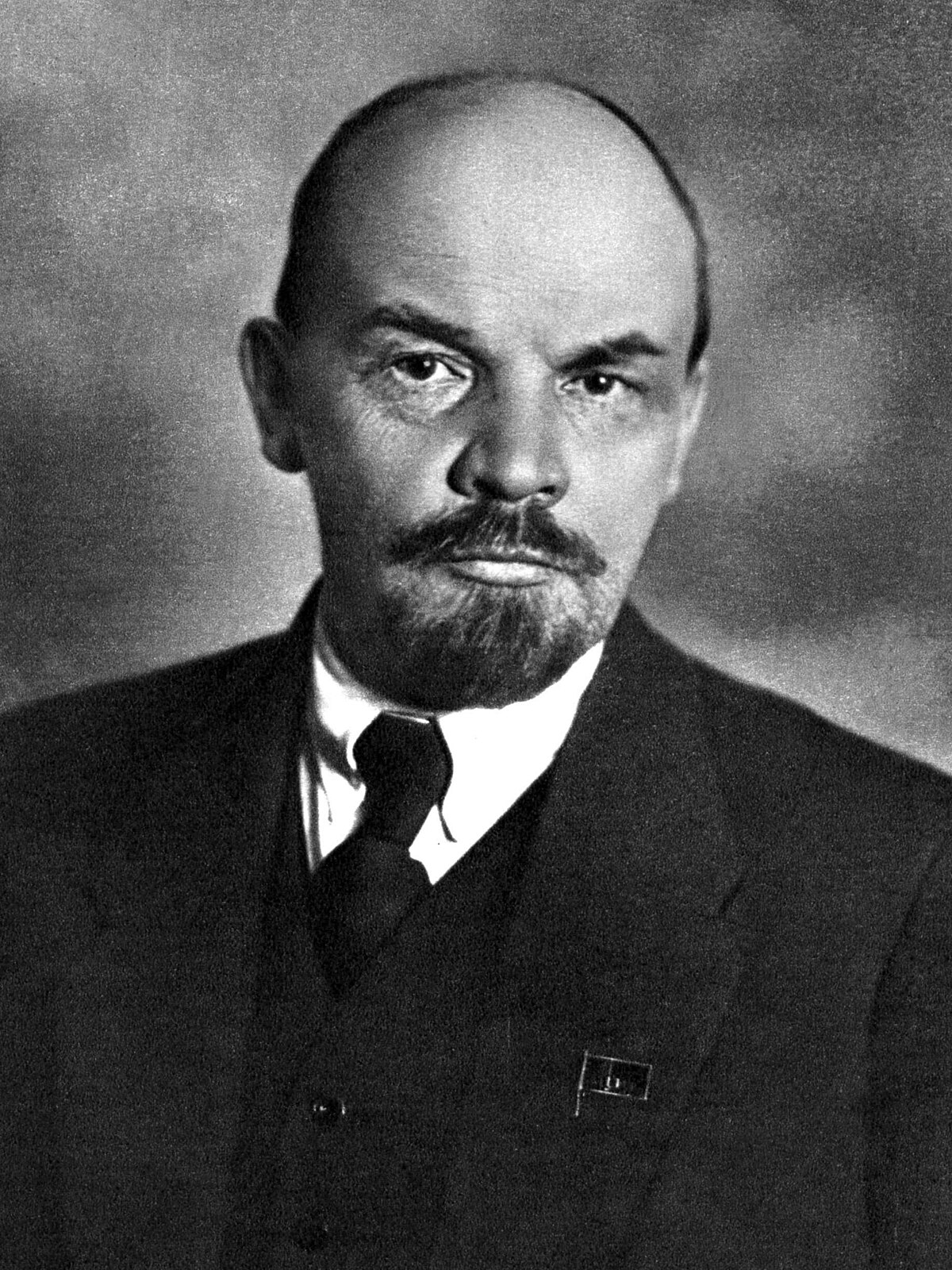
Vladimir Lenin
- Trotsky was greeted with laughter when introduced as new Minister of Foreign Affairs
- Alexandra Kollantai had the door of her ministry closed in her face when she tried to get in
- It took ten days and armed forces to make bank staff open vaults
- Outside of the capital Bolshevik power was even more limited
- Most soviets and other local bodies were in control of Mensheviks, Socialist Revolutionaries and non-party socialists
- In the countryside, Bolshevik power was non-existent
- There was a great deal of opposition to one-party rule and hundreds of resolutions and petitions flooded in from factory committees, army units, and Moscow and provincial towns
- They demanded that there be cooperation between the parties to avoid factional strife and civil war
Petition from the 35 Army division: "Among the soldiers, there are no Bolsheviks, Mensheviks or Socialist Revolutionaries, only Democrats."
- Railway men's union (backed by the Post and telegraph union) threatened to cut off communications if Bolsheviks did not hold talks with other parties
- This forced Lenin to send reps to talks with other parties about power-sharing. The planned elections to the Constituent Assembly were allowed to go ahead at the end of November
- Some leading Bolsheviks (Kamenev, Zinoviev) were in favour of socialist coalition government
- They believed an isolated Bolshevik party would have to maintain itself by terror and would not survive the civil war that would inevitably follow
- Lenin made sure the talks collapsed
- However, he did bring Left Socialist Revolutionaries into the Sovnarkom because with them in gov he could claim representation of the interests of the peasantry
- Lenin always intended for the Bolsheviks to rule alone
- Saw revolution as a turning point in world history and he had a vision of a utopian world order. He was not prepared to see his vision diluted by compromise with other socialists
First measures
- In order to survive the first few months Lenin gave the workers and peasants what they wanted
- Power was thrown out to local Soviets to manage their affairs even though they were not under central control
- The Sovnarkom passed a number of decrees to keep the support of the people
- The decree on peace: called for an immediate truce and just peace with "no annexations, no indemnities", and aimed to pull Russia out of the war.
- The decree on land: gave peasants the right to take over the estates of the gentry, without compensation, and to decide for themselves the best way to divide it up. Land could no longer be bought, sold or rented – belonged to the "entire people"
- The decree on workers' control: factory committees were given the right to control production and finance in workplaces, could supervise the management
- The decree on the rights of the people of Russia: gave the right of self-determination to national minorities in the former Russian Empire, purely a paper measure since Bolsheviks did not have control of the areas in which most of these people lived
The chaos of the early days
- Crowds drinking after finding the Tsar's wine cellars
- Drunken mobs of soldiers and sailors roamed the streets
- Increased violence and lawlessness
- Gorky condemned the rioters as greedy, full of hate and violent rather than revolutionary
- Took a long time for this to be brought under control
Dealing with opposition and threats
- Closed down opposition press
- Turned on opposition political parties
- The Kadets were denounced and outlawed
- Leading Kadets arrested
- SRs and Mensheviks soon followed the Kadets into prison
- Dec 7, 1917: Cheka was set up
The All-Russian Extraordinary Commission for Combating Counter-Revolution and Sabotage
Provided dependable security
Brought units of the Red Guard and military units under its control
- Civil service was thoroughly purged
- Junior officials willing to support the Bolsheviks were promoted
- Bolshevik officials were brought in
- Third-rate people or corrupt opportunists often put in positions of real power
- Bureaucracy was obedient but of poor quality
- Some opposition to the Bolsheviks, but was weak and uncoordinated
- Mensheviks and right-wing SRs did not want to get involved with organised violence (fear of civil war)
- They still had hopes for the Constituent Assembly and an all-socialist gov – did not think Bolsheviks would survive
Class warfare
- It was used as a means of intimidating the middle classes and keeping control
- Bolshevik press identified the bourgeois as the enemies of the people
- They were condemned as parasites and bloodsuckers
- State licensed and encouraged people to plunder the houses of the middle classes to loot the looters
- The legal system was abolished and replaced by revolutionary justice, it was arbitrary and violent in character
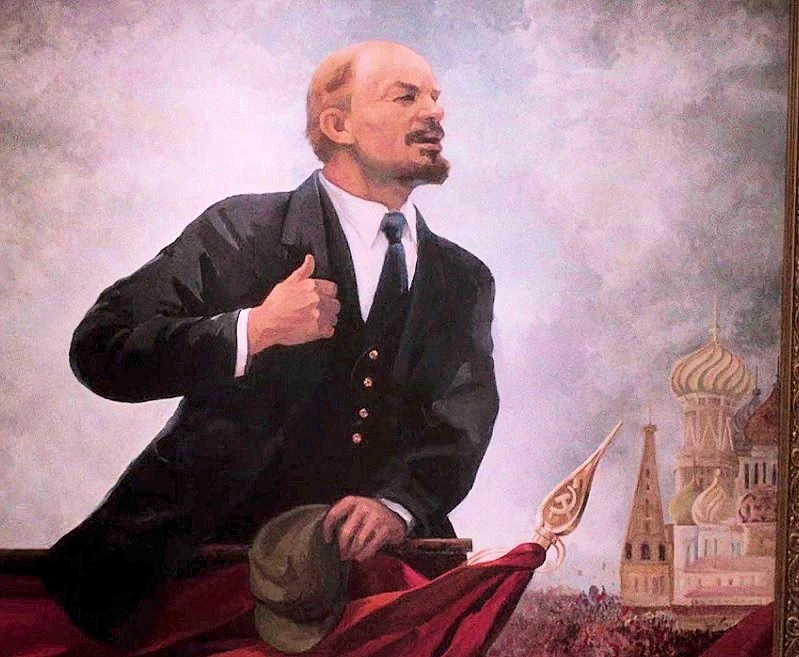
Lenin's Legacy: Working Class Leadership
- 'Comrade' was used as the new form of address and gave power and dignity to the once downtrodden
- Anybody accused of being a bourgeois was liable to be arrested
- Anyone well-dressed was at risk of being beaten and robbed on the streets. This played well with workers, soldiers and peasants as they supported moves to a more egalitarian society
- Titles were abolished
- Workers and soldiers became cockier and more assertive and they were rude to their social betters
The Constituent Assembly
- Posed a bigger threat to the Bolsheviks
- Lenin was forced to allow elections in November
- These were the first free elections in centuries
- Gave the assembly a mandate as the legitimate body to decide the makeup of future government
- When election results became known, Bolsheviks only won 175 seats compared with 410 for the SRs
- Lenin however asserted his Soviet gov represented a higher stage of democracy than an elected assembly containing multiple parties
- He said the Constituent Assembly smacked of bourgeois parliamentary democracy and he declared it redundant
- The Assembly was allowed to meet for one day. (Jan 5, 1918) Doors were then closed, and deputies were told to go home
- A demonstration took place in favour of the Assembly, protesters were shot at by soldiers loyal to the Sovnarkom. This was the first time soldiers had fired upon unarmed demonstrators since February 1917
The Russian Constituent Assembly elections of November 1917 posed a significant threat to the Bolsheviks, as the Socialist Revolutionaries (SRs) won 410 seats, dwarfing the Bolsheviks' 175. Lenin, however, dismissed the Assembly as a relic of bourgeois democracy, claiming that his Soviet government represented a higher form of democracy. As a result, the Assembly was allowed to meet only once on January 5, 1918, before being dissolved. A subsequent pro-Assembly demonstration was brutally suppressed by soldiers loyal to the Bolshevik regime, marking the first instance of soldiers firing on unarmed demonstrators since February 1917.
Peace
- The promise that brought many to the Bolsheviks was their pledge to end the war
- The decree on peace (first signed Oct 26) was a plea to other nations for an immediate truce and just a peace with 'no annexations, no indemnities'
- The practical resolution proved more difficult
- The Russian army was disintegrating
- Soldiers who had no desire to die in futile last-minute fighting wanted to return home
- Represented both good and bad news for the Bolsheviks
- Good: Russian generals could not use the army against them
- Bad: the German army was free to walk into Russia and take what it wanted
- The Western allies ignored the decree on peace
- Lenin now faced a huge problem that was not resolved until March 1918
Interpretations
📌 Was the October Revolution really a popular event?
Totalitarian
- Lenin and the Bolsheviks imposed their ideology onto an unwilling population
- Historians like Leonard Schapiro, Robert Conquest, Adam Ulam and Richard Pipes take this view
- Believe the revolution led directly to a totalitarian communist state
- This is also referred to as the liberal view because it was espoused by Western liberal historians
- They criticised the Soviet Union for its lack of civil rights and disregard for personal freedom
Revisionist
- Challenged the Totalitarian view
- Suspected hostile accounts of the October Revolution were part of Cold War politics of the post-war period
- Look more closely at the role of the Bolshevik Party and workers in the revolution
- Historians like Stephen Smith saw a much more active role for lower ranks of the Bolsheviks in pushing revolution
- Suggested Lenin was not so firmly in control and Bolsheviks were not as disciplined as claimed
- Sheila Fitzpatrick suggested it was workers, soldiers and peasants – the people – who created the circumstances in which the Bolsheviks could operate
- They formed soviets and committees before the Bolsheviks came to power
- More popular view of the Oct Revolution
- These historians have 'revised' previous views
Recent views
- Historians such as Robert Service and Christopher Read have acknowledged there is room to accept the scholarship of the Cold War and revisionist historians
- They argue Lenin is a key figure and say without his drive and persistence there may not have been an Oct Revolution
- Also, say all the hallmarks of a coup are present in the way that the Bolsheviks seized power
- They maintain however that there was lots of independent action at local levels in the party and in the soviets
- The situation greatly facilitated the take-over
- Increased radicalism of the workers, soldiers, sailors and peasants cannot be ignored
- The extent of their involvement is crucial in assessing whether the events of October 1917 constituted a popular revolution or not
- Beryl Williams maintains that workers might support the October Revolution and vote for the Bolsheviks in elections
- This does not however imply support for one-party rule
Vladimir Lenin: Significance and Legacy
- Lenin was rarely at the centre of the action – this was mostly Trotsky
- From mid-1921 his health was in decline
- Suffered a stroke in May 1922
- Clashed massively with Stalin
- 'Great Russia Chauvinism' increased bureaucracy and Stalin's increasing personal power
- March 1923: suffered a second stroke that left him mute and therefore unable to remove Stalin as General Secretary
- His decision not to share power side-lined those in favour of a socialist coalition – Kamenev, Zinoviev, Kykove
- It was Lenin who established the widespread use of terror to maintain political control
- Stalin built upon the foundations of Lenin's terror state
Historian Christopher Read argues Lenin laid the foundations for Stalinism and therefore Lenin was significant: "iron discipline; ruthless dictatorship", "building Soviet strength for future defence"
Evidence to suggest Lenin played an important role:
- Trotsky claimed that "had Lenin not managed to come to Petrograd in April 1917, the October Revolution would not have taken place."
- Trotsky believed Lenin was key to Bolshevik success
- Unafraid to sacrifice his life for the revolution
Evidence to suggest Lenin was not central to revolutionary success:
- Trotsky also suggested that politics and revolutions were about the involvement of the masses
- The Bolshevik party only provided direction
The Cult of Lenin
- Began just after the attempt on Lenin's life in 1918
- Eulogies appeared in the Bolshevik press giving him Christ-like qualities
- Presented him as unafraid to sacrifice his life for the revolution
- Portraits and posters were put up to promote his leadership qualities, Lenin disliked this adulation
- When he died Stalin insisted on having him embalmed and his tomb turned into a shrine
- Lenin's brain was sliced into 30,000 segments and stored so that scientists in the future could discover the secrets of his genius
Lenin died on the 21st of January 1924, the ensuing power struggle is traditionally seen as a contest between Trotsky and Stalin, and Stalin ultimately won.
📌 How did he do this?
- Stalin was already the General Secretary of the Party
- He was also a member of the Politburo
- Became the Commissar for Nationalities – he gained the support of the minorities
- His deputies had files on Party members
Stalin Powerbase
- Was invited on to the Central Committee of the Bolshevik Party in 1912
- One of the first to arrive in Petrograd when the Feb Revolution broke out
- Editor of Pravda, the Party Newspaper
- After the Oct Revolution was made Commissar for Nationalities
- He had an office close to Lenin and therefore gained his trust as a devoted Bolshevik operator
- The post gave him wide powers of appointment
- He was massively trusted by Lenin
- Was made head of the Rabkrin (Workers' and Peasants' Inspectorate) in March 1919
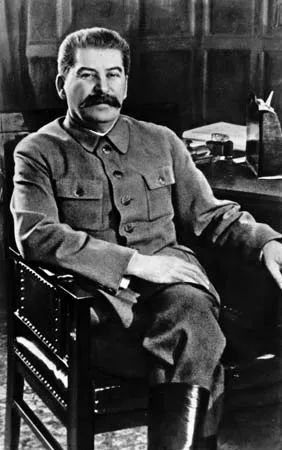
Joseph Stalin
- May 1919 – was put in charge of the Orgburo – controlled aspects of Party Organisation
- 1922 – appointed General Secretary, in charge of general organisation – a post created for Stalin
- Also elected onto the Politburo
- The only person to be a member of all three leading exec bodies in government, his power and influence he was constantly underrated
Strengths as a leader
- Clever, smart, educated
- Calculated, organised
Weaknesses as a leader
- Tended to disobey orders from the centre
- Wanted to do things his own way
Vladimir Lenin, while a pivotal figure in the Russian Revolution, had several weaknesses as a leader. His centralized approach to power often led to authoritarian practices, stifling political pluralism. Lenin's use of violent repression, such as the Red Terror, alienated many and laid the groundwork for the brutalities of later Soviet regimes. His economic policies, like War Communism, caused severe hardships, leading to widespread famine and unrest. These actions, though aimed at preserving the revolution, also contributed to the long-term instability and authoritarianism in the Soviet Union.
Trotsky Powerbase
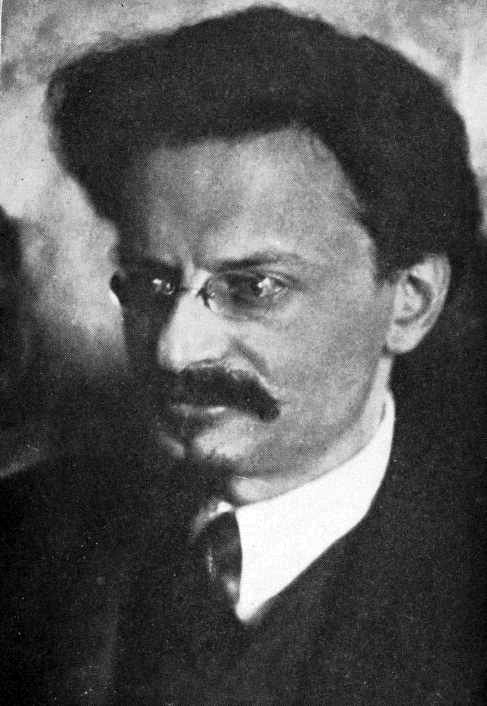
Leon Trotsky
- Popular with the younger, more radical elements in the Party
- Planned the October Revolution
- Organisation of the Red Army
- Position as Commissar for War (seen as 'Bonaparte' by other members of the party)
Strengths as a leader
- Rivalled Lenin in intellect
- One of the Bolshevik's best orators
- Drive and determination
Vladimir Lenin was a visionary leader known for his strategic thinking, unwavering determination, and ability to inspire and mobilize the masses. He was a masterful orator and ideologue, driving the Bolshevik Revolution with a clear vision of a socialist future. Lenin's leadership was marked by his ability to make decisive, often bold decisions, guiding the course of history with his revolutionary zeal.
Weaknesses as a leader
- Arrogance
- Aloofness
- Seemed dismissive of other leading Bolsheviks
- Short and brusque with people who seemed to waste his time
- Never went out of his way to endear himself to colleagues
- Did not particularly like making deals or alliances
- Preferred debate
Zinoviev Powerbase
- An old Bolshevik (joined in 1903)
- A close collaborator with Lenin before the revolution
- Returned to Petrograd with Lenin in April 1917 and fled with him to Finland after the July Days
- Mensheviks referred to him as 'Lenin's mad dog'
- Played an important part in initiating the cult of Lenin after the assassination attempt in 1918
- This allowed him to build up a strong power base
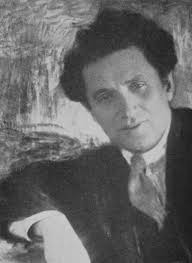
Grigory Zinoviev
- Was made Chairman of the Comintern in 1919, at a time when the world revolution was eagerly awaited
- Fell out with Lenin because he favoured a socialist coalition
- Became a full member of the Politburo in 1921
- Was made Party Secretary in Leningrad from 1917
Strengths as a leader
- An impressive orator
Weaknesses as a leader
- Speeches were overblown and lacked substance
- Widely disliked
- Over-ambitious
- Flaunted rewards and trappings of office
Kamenev Powerbase
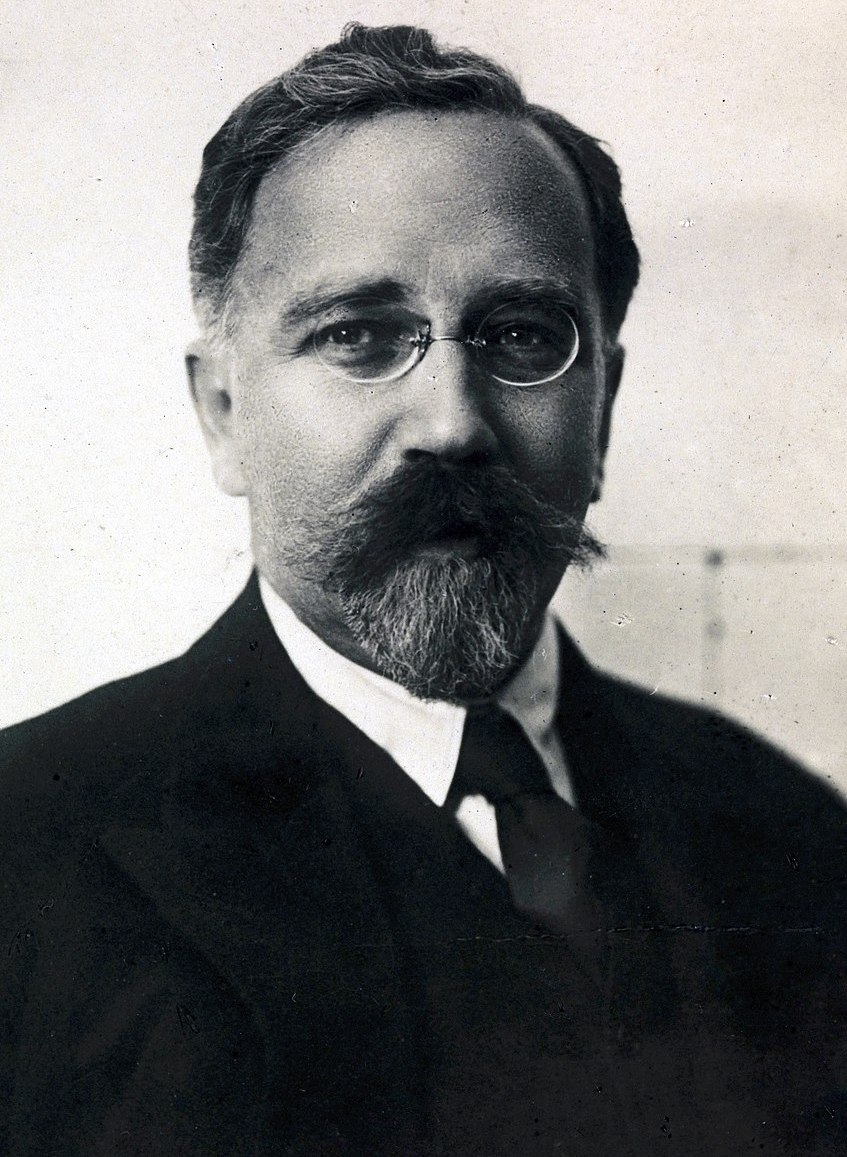
Lev Kamenev
- Active Bolshevik and full-time revolutionary from 1905
- A close collaborator with Lenin abroad from 1907-14
- Built up the party in the Caucasus
- An excellent editor of Pravda
- Was made Party Secretary in Moscow from 1917
- Later made Commissar for Foreign Trade
- This brought him into the Politburo
Strengths as a leader
- Literary fluency
- Personal charm
- Was a prolific writer
- Moderation was shown during the civil war – sought to reduce the scope of Cheka violence (fell out with Trotsky and Lenin because of this)
Weaknesses as a leader
- Not a natural leader
Bukharin Powerbase
- Led the left-wing opposition to the signing of the Treaty of Brest-Litovsk
- Became editor of Pravda in 1918 until 1929
- Remained in Moscow during the Civil War – reputation as a major theoretician in the Party increased
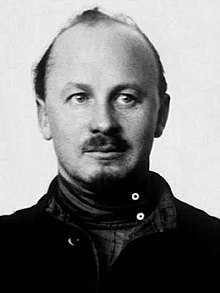
Nikolai Bukharin
Strengths as a leader
- Popular
- Could argue his points fiercely
Weaknesses as a leader
- Lacked a strong power base
- Lacked the skills and political cunning of Stalin (who referred to him as "soft wax")
- Posts gave him power over words and ideas rather than people
Rykov Powerbase
- Peasant background
- Became chairman of the Vesenkha (Supreme Economic Council) in 1918
- Later succeeded Lenin as chairman of the Sovnarkom in 1921
Strengths as a leader
- Authoritative
- Outspoken
- Frank and direct
- Talented administrator
Weaknesses as a leader
- Did not always endear himself to colleagues
- Had a reputation for being a heavy drinker
Different interpretations about why Stalin succeeded:
Role of the individual
- Stalin was underestimated
- His opponents were overcome by their flaws and made mistakes
The importance of ideology
- Stalin reverted to Lenin's War Communism to maintain socialism
- Believed the NEP would not build socialism
Stalin's control of the Party apparatus
- Built up a personal following
- Removed rivals and their supporters
Lenin's concept of the Party
- Stalin continued the organised, disciplined and centralised Party that Lenin had conceptualised
- Rivals fell victim to the political machine they had helped construct
The impact of social and cultural factors
- Stalin could count on the support of the industrial workers
- He seemed more patriotic than his rivals
Luck/chance
- Stalin was lucky Lenin had died after a series of strokes and therefore could not dismiss him as General Secretary
- Was also fortunate another rival to that position, Sverdlov, died in 1919 Stalin's control of the Party apparatus and Lenin's concept of the Party were the most important factors that influenced Stalin's success, closely followed by his role as an individual. Other significant factors include the importance of ideology and the impact of social and cultural factors. Luck and chance were the least important factors.
Stalin's tight grip on the Communist Party's machinery allowed him to manipulate appointments and consolidate power.
500K+ Students Use These Powerful Tools to Master Political authority and government For their A-Level Exams.
Enhance your understanding with flashcards, quizzes, and exams—designed to help you grasp key concepts, reinforce learning, and master any topic with confidence!
380 flashcards
Flashcards on Political authority and government
Revise key concepts with interactive flashcards.
Try History Flashcards24 quizzes
Quizzes on Political authority and government
Test your knowledge with fun and engaging quizzes.
Try History Quizzes29 questions
Exam questions on Political authority and government
Boost your confidence with real exam questions.
Try History Questions27 exams created
Exam Builder on Political authority and government
Create custom exams across topics for better practice!
Try History exam builder120 papers
Past Papers on Political authority and government
Practice past papers to reinforce exam experience.
Try History Past PapersOther Revision Notes related to Political authority and government you should explore
Discover More Revision Notes Related to Political authority and government to Deepen Your Understanding and Improve Your Mastery
96%
114 rated
The emergence of Communist dictatorship 1917–1941
Political Authority and government: the consolidation
453+ studying
181KViews96%
114 rated
The emergence of Communist dictatorship 1917–1941
Economic developments
317+ studying
196KViews96%
114 rated
The emergence of Communist dictatorship 1917–1941
Social developments
227+ studying
183KViews96%
114 rated
The emergence of Communist dictatorship 1917–1941
Opposition
343+ studying
193KViews